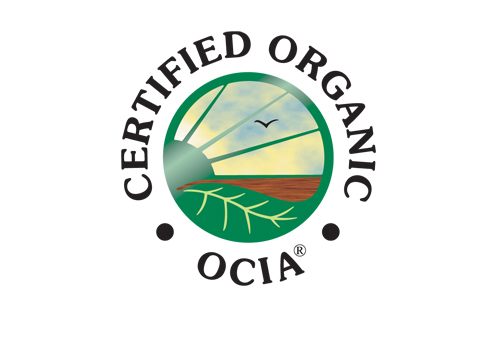

OCIA - Specialty Crop Certifications (Shiitake and Oyster Mushrooms)

OCIA certification arises from the following basic principles: Organic certification is a system of institutionalized trust, allowing consumers to identify and reward conscientious stewards of our natural heritage. Organic certification is a privilege to be earned rather than a right to be withdrawn. No one knows the farm system better than a farmer. Organic production focuses on natural processes and their management: materials and products are an adjunct to, not a replacement for, effective management. Diversity, interaction, adaptability and competition are characteristic, natural elements to be respected in the organic system. The organic farming system should be structured and managed to ensure that soil loss through erosion and other degradation does not exceed natural replacement rates. Organic operations must take measures to maintain and/or improve landscape and enhance biodiversity.The producers, handlers, and consumers depend on processors of organic products to preserve or enhance the original nutritive value for the type of product, while continuing producer efforts to minimize contamination of the product and the environment. The audit trail is an integral part of organic certification. The use of products made from organisms that have been modified by genetic engineering techniques (as defined in the Materials List) is prohibited and is in direct violation of the philosophy and organic intent of OCIA. Nanotechology applied as an extension to the process of genetic modification referred to in 1.2.10 is prohibited within the organic system.The use of manufactured nanoparticles or nanostructures is prohibited. *Notwithstanding the above, the use of naturally occurring nanoparticles, as in traditional biodynamic practice, is allowed. The use of artificial nanoscale processes is prohibited within the organic system.
Applied Standards
Only trees not treated with synthetic pesticides can be used in the cultivation of specialty mushrooms. Trees treated with Bacillus Thuriengensis (BT) are acceptable, as are trees or limbs of trees treated with any of the pesticide alternatives acceptable by OCIA. Supplements: All supplements as synthetic fertilizers or pesticides are prohibited. Log and spawn site coatings used to prevent moisture loss must be food grade paraffin, cheese wax, mineral oil or beeswax. Recycled wax can be used as long as its origin can be ascertained. Petroleum based tree coatings, latex and oil based paints are prohibited. Choices of spawn and suppliers may be left to the discretion of the grower. Certified organic spawn should be used if available. The use of any synthetic pesticides is prohibited. The use of preventative management, sanitation, proper air flow and removal of affected blocks is required. Dilute chlorine bleach used as a disinfectant is acceptable. Use of mechanical controls (traps and physical barriers without addition of synthetic pesticides with the exception of pheromones or attractants), biological controls (natural predators and parasites), physical controls (sprays and dusts such as diatomaceous earth, insecticidal soaps and natural pesticides as approved by OCIA) are acceptable pest controls. Woodlot Management for specialty mushrooms produced outdoors on natural logs: Woodlots directly adjoining agricultural fields should have a 100 foot buffer strip separating the mushrooms growing area from the field to avoid agricultural drift. The use of herbicides for understory control is prohibited. Well, stream and pond water used for soaking logs and blocks must be tested to determine if concentrations of nitrates and coliforms are acceptably low. Use of chlorinated water in urban areas is acceptable. Use of water known to be contaminated with toxic substances, byproducts of urban, industrial or waste treatment processes is prohibited. Harvesting, storage and shipping procedures that ensure maximum freshness and nutritional quality are encouraged. Harvesting at proper maturity levels, chilling immediately through refrigeration, clean work areas for packing and clean bulk containers used for storage during chilling are highly encouraged. This annex is intended to complement the admissibility criteria, authorized materials and methods, and certification procedures, as detailed elsewhere in the standards. It refers both to water grown sprouts and soil grown sprouts. Seeds must be either OCIA-certified or OCIA recognized certified organic. Water used for watering and rinsing must be consistent with OCIA processing water standards. It must meet government regulations, e.g. potable water. materials and see that they meet OCIA standards. Fertilizers and soil amendments must meet OCIA standards. No soluble fertilizers may be added to the irrigating water. Pest (phytosanitary) management must stress preventive measures, such as impeccable cleaning of containers and chambers. Light source can be natural or artificial.
